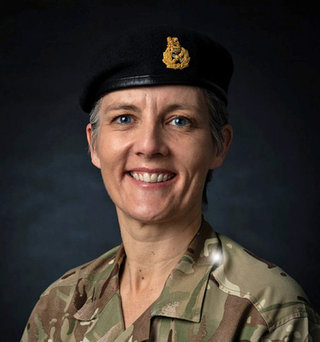Training
How MOD cadet forces offer early military career benefits
The UK Ministry of Defence sponsors and supports five cadet forces and a recent university study celebrated the positive impact of cadet forces for the UK. Harry Lye looks at the importance of the cadets and early routes into the Armed Forces.
A recent University of Northampton study into the social impact of spending on UK cadets found that participation in cadet programmes leads to improved communication and leadership skills. The UK’s 2021 Defence Command Paper refreshed the UK’s commitment to investing in cadets.
The impact is felt at the highest levels in defence; in a recent interview with Global Defence Technology, Major General Sharon Nesmith, the first female officer to command at two-star level in the British Army, shared her journey into the armed forces, which began with a university cadetship.
Nesmith said: “It was the best club you could join at university in my eyes. Not only did I get a brilliant insight into my future career – and felt like I was already embarking on it – but I was also given chances to do things that I would never have had the opportunity to do with people that I really enjoyed doing them with.
“Look through the lens now of how costly it is to embark on a profession that requires you to go to university; to be able to combine all of that goodness with reducing the overhead financially, it's got to be a win-win.”
The UK currently has 130,000 cadets and almost 30,000 volunteers who support them. Following the Cadet Expansion Programme launched by the UK Government in 2012, school cadet units doubled to over 500 by 2020.
The Cadet Force Adult Volunteers each provide around 400 hours of volunteering per year, for a total of 11.6 million hours.
The University of Northampton report reads: “97% of Cadet Force Adult Volunteers (CFAVs) that were teachers, social workers or members of the police force and who responded to our survey believe that participation in the cadet forces is particularly beneficial for disadvantaged youngsters.”
It goes on to outline ‘a significant return on investment in the cadet forces’ saying that the cadet experience offered potentially life-changing opportunities for future career progression and vocational qualifications.
At the time of the report’s publishing, Defence Minister James Heappey said: “I am delighted to read the positive conclusions from the University of Northampton’s report into our cadets, which emphasises the importance of this programme for both young people and adult volunteers.
“Cadets form a vital part of the communities they represent, building confidence, resilience and friendship in a unique setting. This report clearly demonstrates how cadet forces benefit our youth by broadening their horizons and unlocking their potential.”

// Major General Sharon Nesmith. Credit: MOD
Social mobility
In April 2021, the Ministry of Defence and Department for Education announced an extra £1.1m of funding for the Cadet Expansion Programme. The Northampton report found cadet forces produce an annual return on investment in the region of £95m.
The report added that the highest improvements in educational performance, attendance and behaviour for cadets were found for those who were male, spoke English as an additional language or who were economically disadvantaged. Participation in the cadets is directly linked to better social mobility, educational outcomes and employability.
The positive impacts on social mobility are, frankly, amazing.
Professor Simon Denny, from the University of Northampton’s Institute for Social Innovation and Impact, says: “Our research has concluded that the cadet forces provide structured challenge, discipline, training, education and, importantly, fun. Cadets and their adult volunteer instructors gain new skills and qualifications which increase their education and employment opportunities.
“The positive impacts on social mobility are, frankly, amazing. The cadet forces represent a very good use of taxpayers’ money.”
Commenting at the time of publication, Education Secretary and former Defence Secretary Gavin Williamson said: “I have seen for myself how the values of our armed forces – those of resilience, self-discipline and perseverance – can benefit so many of our young people with skills they can rely on well into adult life. That, for me, is one of the biggest benefits of this growing programme and why we are expanding it into even more schools.
“This study confirms the positive impact that being a cadet can have, by levelling up outcomes in education, employment and health for young people.”
Cadets have also risen to the highest levels of UK intelligence, and Dr Michael Foale, the British-American astronaut, who holds the record for cumulative time in space for a UK citizen, was an air cadet.
The report found that serving soldiers who were previously cadets ‘have higher self-efficacy than their non-cadet peers’ and are four times more likely to become an officer or senior NCO. Former cadets are also likely to serve around six years longer than their non-cadet peers and cadets said they believe it ‘positively helped’ their military careers.
// Main image: Minister for the Armed Forces James Heapey visits a cadet unit based in a South London girls’ school. Credit: Crown copyright, MOD 2021